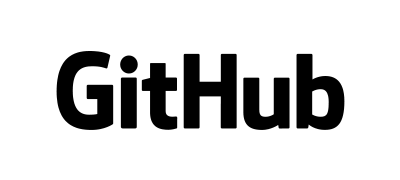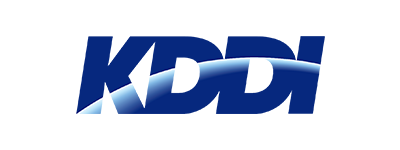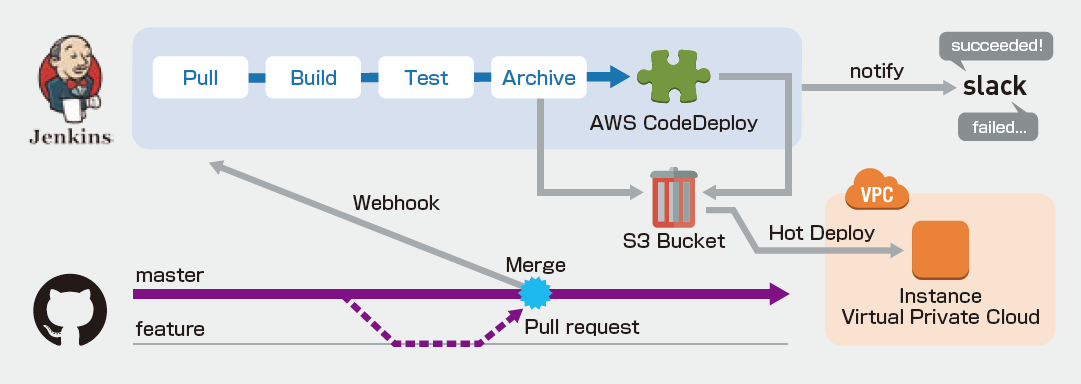Specifications/Technical Information
Application for evaluation machine
- FAQ

Github
github
GitHub - User case study -KDDI CORPORATION




KDDI CORPORATION
A comprehensive telecommunications carrier that offers both mobile and fixed-line communications. "Multi-use" that provides content applications to both fixed and mobile, "multi-network" that organically combines fixed-line and Wi-Fi, and "multi-device" that allows content services to be used on smart devices, PCs, and TVs. In addition to aiming to revolutionize lifestyles with our strategy, we will provide a comprehensive life design that covers not only telecommunications but also fields such as commerce, finance, and the electric power business. We will promote reforms based on the two growth strategies of the "global strategy" that contributes to economic growth, improvement of people's lives, and corporate activities in each country.
- Lack of development speed and agility due to difficulty in responding quickly to market changes
- Insufficient and unstable integration with third-party tools
- “Reinventing the wheel” is rampant because there is no horizontal connection across departments and projects


- Developed "au Denki App" in just 4 months, shortening lead time
- 連携プラグインが豊富なため、CI/CDとインフラの構成管理の自動化を実現
- 開発ノウハウの継承やコードの再利用が容易となり開発コストの削減に期待
Succeeded in differentiating from other companies with KDDI's exclusive app that entered the retail electricity business
KDDI Corporation (hereafter, KDDI) has contributed to the realization of a rich communication society by providing high-quality communication services and services with new social value. In particular, for individual customers, under the au brand, we are developing a mobile communication (au mobile phone) business and a fixed-line communication (broadband Internet, fixed-line phone) business. The challenge was “au Denki,” which was launched in line with the full liberalization of electricity from April 2016.
au Denki, where KDDI sells electricity to all consumers, including general households, as a retail electricity provider, offers cash back based on monthly usage charges when used in conjunction with au mobile phones and smartphones. It is also receiving great interest in the liberalized electricity market. In particular, it has succeeded in differentiating itself from its competitors with the industry's first app dedicated to smart devices, the au Denki app, which allows users to obtain information on how to use electricity more efficiently.
The au Denki app enables detailed visualization of electricity usage by household on a daily, weekly, monthly, and yearly basis, and also displays the predicted usage from the next month onwards in kw and amount, allowing the user to select the optimal service plan. It is now possible to use it to judge how to save money and electricity charges. In addition, it is also characterized by providing useful information by push notification of the application, such as comparison of electricity usage with households that are very similar to contracted households and introduction of notable energy-saving products.
“With the au Denki app, users can easily check their usage up to the previous day using their au ID. Hundreds of companies have entered the electric power wholesale business, but we are proud that KDDI is the first to offer a sophisticated smartphone app, and our customers love it for its ease of use and uniqueness." Mr. Mamoru Ohashi, Deputy Manager of Framework Group, Cloud Service Development Department, KDDI Platform Development Headquarters.
Reviewing waterfall-type outsourcing and transitioning to a development environment that can realize agile-type development
This au Denki app was developed just four months before the start of the service. What made this possible was the transition to agile development using the enterprise software development platform "GitHub Enterprise" based on the distributed version control system "Git".
Mr. Ohashi says, "In the past, it was common for the Company to outsource development to external vendors. We also did some in-house development, but the software development environment was different for each project and there was no horizontal connection. ``Reinventing the wheel,'' making duplicates of different things, was rampant." In recent years, venture companies that develop applications for enterprises with only a few people have appeared, and they said that they had a great sense of crisis about the lack of speed and agility in their own development.
“In order to be able to sensitively grasp user needs in the highly fluid and fast-paced consumer market, it was necessary to review the conventional development system that relied heavily on outsourcing. We had to establish a development infrastructure that would enable close collaboration with departments and shift to agile development that incorporates DevOps." (Mr. Ohashi)
However, source code management becomes even more important for the spread of in-house development. So I decided to use Git. Initially, it was decided to use the open source "GitLab", but GitLab had to secure the risks of operation and vulnerabilities on its own, which was a fatal problem in large-scale development. had few plug-ins with third-party tools, and lacked extensibility and functionality. In addition, the lack of sufficient document management was also a major issue.
Therefore, the company decided to replace GitLab with GitHub Enterprise, which has many cases of introduction in internal development sites of major companies overseas. Yuki Yoshida, Chief of the Framework Group, Cloud Service Development Department, KDDI Platform Development Division, explained the reason for this, saying, "GitHub Enterprise has solid support, including vulnerability countermeasures, and has a proven track record in enterprise-level large-scale development. In addition to source code, design documents and documents can also be created in text-based format using markdown notation, so development information can be centrally managed on GitHub Enterprise. Eliminating the lack of communication between developers and operators is one of the important issues in advancing development, and we thought that switching to GitHub Enterprise would be desirable as a countermeasure."
In addition, Mr. Tsubasa Hirota, Chief of the Cloud Technology Group, Cloud Operation Center, KDDI Operations Headquarters, points out the ease of use for developers, the large number of services that can be linked, and the stability. “In the au Denki app development project, we run agile development in two-week sprints, and work efficiency is greatly affected by the quality of plugins. GitHub Enterprise was the best solution for improving development speed."

Realize CI/CD automation and IaC (Infrastructure as Code) to improve code reuse rate and development efficiency
Third-party tools linked to GitHub Enterprise include the continuous integration (CI) tool "Jenkins" and the chat tool "Slack."
GitHub Enterprise and its third-party tools are used to automate CI, which executes software builds and unit tests each time the source code is committed, and continuous deployment (CD), which applies software to the server each time the source code is changed. I decided to work together. Jenkins jobs are triggered by updating the source code, and the entire development process, such as deploying the modified application to the server, can be automated, reducing manual man-hours and reducing lead time.
Mr. Hirota also said, "By using GitHub Enterprise, infrastructure development and configuration management, which have been done manually so far, can be dynamically changed like application code management. "Infrastructureas Code" (IaC), which is reflected in the infrastructure configuration, has been realized," he emphasizes.
In response, Mr. Ohashi said, ``By automating CI and CD and realizing IaC, even if the next new development project is launched, we will be able to refer to all the knowledge accumulated on GitHub Enterprise for developing au Denki apps. I think that it will be easier to deploy to other projects because the code will be released in-house, and the application will be further improved, and the code reuse rate will increase, which will improve development efficiency, reduce costs, and speed up development. I hope it will accelerate," he said.
In the future, we will make use of the agile development culture realized by the introduction of GitHub Enterprise, and continue to develop the au Denki app so that it is easier for users to use. By enhancing synergies with other services such as the service "au WALLET Market", they plan to consider using applications unique to carriers, such as using WALLET points to sell energy-saving home appliances.
After this project, Mr. Yoshida said, "GitHub Enterprise has contributed greatly to the success of the in-house development of the au Denki app. In the future, we will create a single GitHub Enterprise that will allow developers to collaborate flexibly even in a vertically divided organization. I think it would be good if it could become a foundation for turning in the direction of Mr. Hirota also said, "GitHub Enterprise will become a tool that symbolizes KDDI's development culture in the future."
Mr. Ohashi said, ``With the need to automate infrastructure configuration management, not just for applications, source code is becoming more important than ever, and I believe that GitHub Enterprise is the key to that. In the future, by promoting the centralization of source code management, we will eliminate the reinvention of the wheel and spread GitHub Enterprise throughout the company as a tool for realizing efficient development."
To respond to such feelings on the ground, Macnica, which supports the introduction of GitHub Enterprise domestically, plans to continue supporting the new challenges of KDDI engineers by holding study sessions and training, providing the latest information on development environments, and more.
Feel free to contact us about GitHub Enterprise
Inquiries on the web
Inquiries by phone
045-476-2010
Reception: Monday-Friday 8:45-17:15
Inquiry/Document request
Macnica GitHub
- TEL:045-476-2010
- E-mail:github-rt@macnica.co.jp
Weekdays: 9:00-17:00